A look inside the world of this Wisconsin-based collective of sustainable-agriculture focused women.
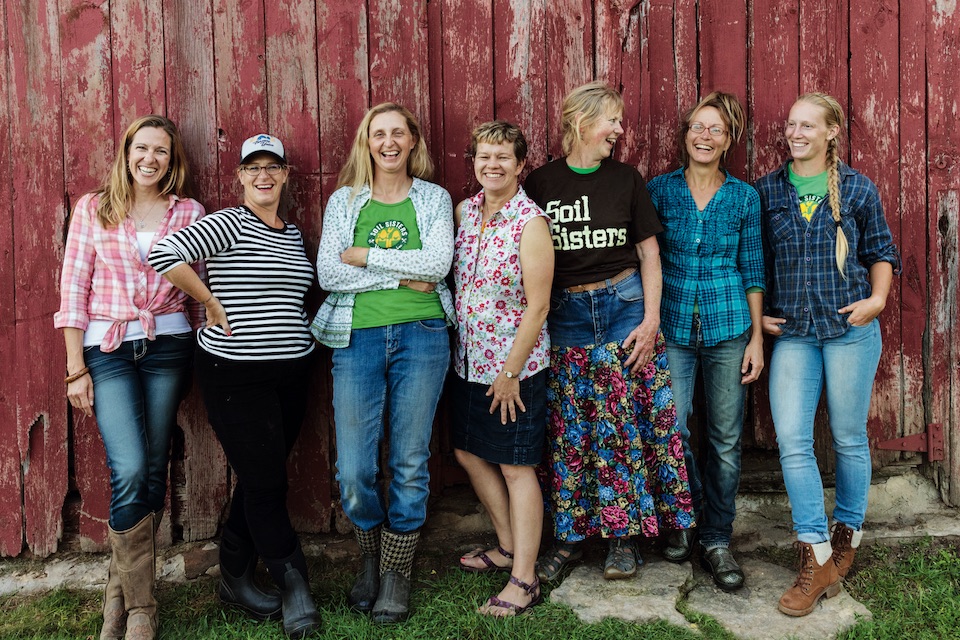
In November 2009, Lisa Kivirist pulled out a map of Wisconsin. Using her Green County farm as the center point, she drew a circle with a 40-mile radius, then identified every female sustainable-food activist who fell inside it. Organic agriculture can be a lonely endeavor in the rural Midwest, the 50-year-old explains, and winters are long: “I felt the need to connect.”
The following month, 12 women gathered around the woodstove at Kivirist’s five-acre produce operation and farmstay in Browntown. One dairy owner sought counsel on dehorning goats. A vegetable grower posed questions about canning. Most guests were simply grateful for a night off, a glass of wine, and the company of kindred spirits.
[mf_h2 align=”left” transform=”uppercase”]LISA KIVIRIST[/mf_h2]
Inn Serendipity Farm and B&B
Browntown, WI
- Lisa Kivirist kick-started the formation of the Soil Sisters in 2009, when she invited a number of like-minded Wisconsin women for dinner at her wind- and solar-powered produce operation – also home to a pop-up farm store and a bed-and-breakfast. “Being connected to these women feeds my soul,” Kivirist says. “I draw inspiration, advice, and support from them in ways I could never have imagined.”
- Yoda spouts sound nutritional wisdom from the side of an equipment shed.
- ’Nantes’ carrots are among the more than 50 vegetable varieties that Kivirist and her husband, John Ivanko, grow organically on their five acres.
Among them: Dela Ends of Scotch Hill Farm, an organic CSA founded in 1994. Ends had done it all – raised poultry, sheep, goats, and kids of the human variety; conducted seed trials for the University of Wisconsin; and educated Senegalese subsistence gardeners on the merits of composting. She had not, however, experienced a whole lot of acceptance in the hamlet of Brodhead. “My family didn’t cultivate the standard commodity crops. We were a postage stamp amid a sea of chemicals,” recalls Ends, 64. “That made us weird to our neighbors, except for maybe the Amish ones. And it’s hard to be the weirdos in a small town.”
[mf_h2 align=”left” transform=”uppercase”]DELA ENDS[/mf_h2]
Scotch Hill Farm and Innisfree Farmstay & Retreat
Brodhead, WI
- Since founding their organic produce CSA 23 years ago, Dela Ends and her husband, Tony, have expanded its offerings to include cut flowers and free-range eggs. Dela has also developed a line of goat-milk soap and, last year, opened Innisfree Farmstay & Retreat. Next on the agenda? A series of horticulture and wellness classes. “Tony and I want to help connect more people with the land,” she explains.
- Dela readies various heirloom tomatoes for her solar food dehydrator.
- The couple’s grandsons, Charles (foreground) and Louis, are often under-foot now that son Micah has returned home to run the farm’s goat dairy.
Kriss Marion, on the other hand, feared that she hadn’t paid enough heed to her neighbors in Blanchardville (population 805), instead marketing CSA shares to urbanites in Madison. “I was working for people I didn’t know,” says the 50-year-old of her eventual decision to shutter the CSA and launch a farmers market and bed-and-breakfast closer to home. “Last year, I earned $26,000 renting out two bedrooms and a camper,” Marion reports. “I owe all of it to Lisa Kivirist and the group she assembled, because they supplied the guidance I needed to take the risk.”
[mf_h2 align=”left” transform=”uppercase”]KRISS MARION[/mf_h2]
Circle M Market Farm
Blanchardville, WI
- Kriss Marion credits the guidance she received from fellow Soil Sisters for the success of her farmstay, comprising two guest rooms and this 1968 Holiday Rambler Trav’ler camper. In 2015, the entrepreneur established the Blanchardville Main Street Farmers Market, where she sells approximately 100 varieties of heirloom vegetables; hand-spun and hand-dyed skeins of wool; and meat from her pastured cows, pigs, and lambs. As if all that doesn’t sound exhausting enough, Marion plans to run for the state senate this fall.
- This ancient Farmall is more outdoor sculpture than working tool.
- Marion’s gaggle of mixed-breed geese provides eggs as well as meat.
In the near decade since Kivirist’s initial outreach, that group has swelled into a multi-generational gale force of 150-plus south-central Wisconsinites who maintain a lively Yahoo listserve, through which they share advice, swap goats and garlic, and offer up, say, 60 bales of organic hay on short order. Officially titled Green County Area Women in Sustainable Agriculture, the collective and its members are more commonly referred to as “Soil Sisters,” a moniker that signifies something “broader and bigger,” per Kivirist. “It encompasses all women tied to the land and each other. If a woman asks how she can become a Soil Sister, my reply is, ‘You already are one.’ We don’t have a bank account or officers or, frankly, expectations. But things get done when women cross-pollinate.”
Things get done when women cross-pollinate.
Especially when they get political. In January 2016, Kivirist, Ends, and Marion filed suit against the Wisconsin Department of Agriculture over a statute banning the sale of home-baked goods – a key revenue source for entrepreneurs of the agricultural and inn-keeping persuasions. Some 21 months later, Lafayette County Circuit Court Judge Duane Jorgenson declared the law in direct conflict with the state’s constitutionally guaranteed right to earn an honest livelihood.
[mf_h2 align=”left” transform=”uppercase”]LINDA DERRICKSON[/mf_h2]
Bluffwood Landing
Monticello, WI
- If the Soil Sisters awarded a trophy for “Best Instagrammer,” it would probably go to Linda “LindaDee” Derrickson (pictured with cattle-dog mix Sam). Derrickson was introduced to the social-media platform by Lauren Rudersdorf (pictured below).
- Among the many reasons to start following @lindadeederrickson: She croons Pete Seeger songs to her bio-dynamically farmed vegetables (above) gives her sheep (right) names like June Carter Cash, and often invites her followers over for fresh-baked cookies.
A few years ago, Soil Sister Jen Riemer, 40, learned of a concentrated animal feeding operation, or CAFO – shorthand for a farm with a large number of confined animals – that threatened to put 5,800 cows on 128 acres abutting her Riemer Family Farm in Brodhead. Worried the resulting manure might contaminate area waterways and wells, Riemer helped launch Green County Defending Our Farmland to mobilize resistance. Says Kivirist, “When Tuls Dairy knocked on Jen’s door in the summer of 2015, asking to rent land, they had no idea they’d awakened the Erin Brockovich of Green County.” Last August, the county’s board of supervisors issued a moratorium on permits for new CAFOs and created a special committee to examine the environmental impacts of such massive livestock outfits.
Occasionally, agitating for change involves far more intimate arenas. Katy Dickson seeded a small revolution amid her family’s conventional soybean, corn, and hay fields by pumping out eggs and organic vegetables on seven acres she purchased from her parents. The imminent birth of Dickson’s first child spurred the globe-trotting Peace Corps volunteer to return home to Browntown in 2007, and the existence of the Soil Sisters enabled her to become comfortable there. “I don’t think I ever saw a female farmer growing up,” explains the 44-year-old. So how’s Dad handling the situation? “He’s happy to have his grandkids around, but the weeds, they bother him,” admits Dickson of her refusal to spray Roundup.
[mf_h2 align=”left” transform=”uppercase”]LAUREN RUDERSDORF[/mf_h2]
Raleigh’s Hillside Farm
Brodhead, WI
- Lauren Rudersdorf and her husband, Kyle, have carved out a sustainable four-acre oasis on her family’s conventional soybean, corn, and alfalfa farm – doubling their CSA customer base and achieving profitability in the three years since they received organic certification. “My parents didn’t earn a real income for decades,” Lauren points out.
- The couple grows 45 different vegetables, including candy-sweet ’Sun Golds’.
- Rescue horse AC pals around with Great Pyrenees Baela and Thoros, who belong to Soil Sister Bethanee Wright, Lauren’s best friend.
[mf_h2 align=”left” transform=”uppercase”]JEN RIEMER[/mf_h2]
Riemer Family Farm
Brodhead, WI
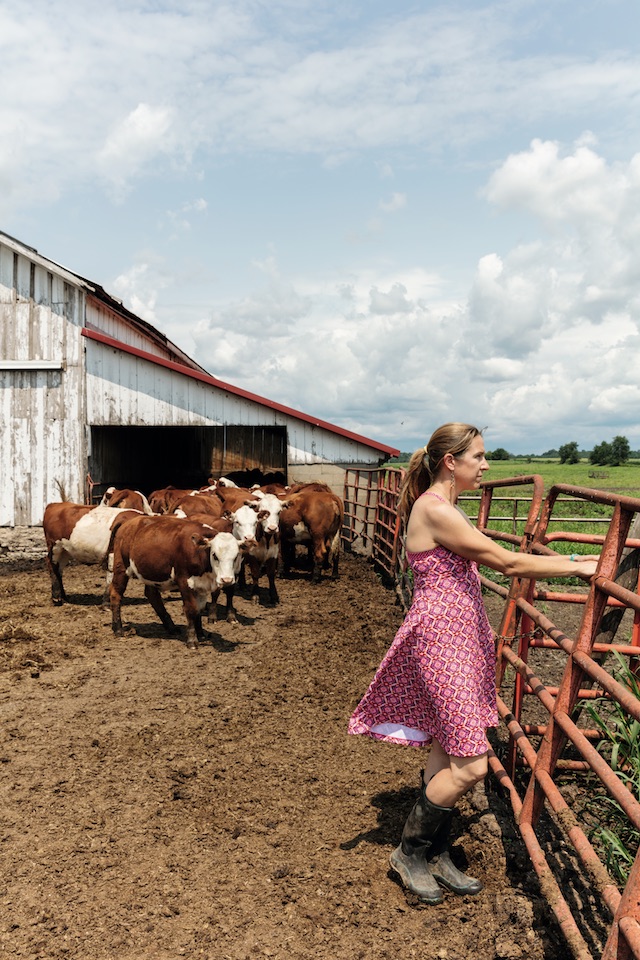
Nicknamed “the Erin Brockovich of Green County” for the battle she waged against a proposed concentrated animal feeding operation, Jen Riemer has also shaken things up on her husband Bryce’s 91-year-old family farm. Since taking over in 2010, the couple has added heritage Red Devon cattle to the existing herd of Herefords and instituted pasture-raised and grass-finished standards for the beef. Jen and Bryce also brought in Rhode Island Red laying hens and Cornish Cross broiler chickens, as well as Broad Breasted Bronze turkeys and St. Croix”“Dorper sheep for meat.
Lauren Rudersdorf, too, has carved an organic sliver from her family’s sizeable commodity-crop operation. The 29-year-old and her BFF, Bethanee Wright, 26, have also proved instrumental in turning elder Soil Sisters on to the PR potential of social media. “Lauren got LindaDee on Instagram for the first time,” says Kivirist, referencing 70-year-old Monticello sheep farmer Linda “LindaDee” Derrickson. “She embraced the platform and really found her voice.”
[mf_h2 align=”left” transform=”uppercase”]KATY DICKSON[/mf_h2]
Christensen’s Farm
Browntown, WI
- After two years spent volunteering for the Peace Corps – which sent her to Nepal, where she met her future husband, Mark – Katy Dickson decided to return to her family’s farm when she became pregnant with her first child. “I was overcome with the sudden desire to grow organic vegetables,” she recalls. Eleven years later, the mom of three tends some 80 varieties on seven acres purchased from her parents, who farm corn, soybeans, and hay conventionally.
- Dickson has also acquired 400 Leghorn, Brown, Special Black, Ameraucana, and Crested Polish hens, who lay between 20 and 30 dozen eggs a day, and recently purchased two Scottish Highland cows, including Streak (pictured above).
We are agricultural educators, environmental warriors, champions of women farmers, and fast friends. Toss out an issue of importance, and this pride of mama lions will be on it with a vengeance. That’s what it means to be a Soil Sister.
By joining forces to promote and protect the independent farms of Wisconsin’s picturesque Driftless Area, the Soil Sisters have established Green County as a vibrant agritourism hotspot. After Marion set up shop in Blanchardville, for instance, the town sprouted several additional B&Bs, a hotel, even a Reiki studio. Lori Stern, 54, proprietor of Cow & Quince, a destination restaurant in New Glarus, sources a significant portion of her ingredients from fellow Soil Sisters – including her 51-year-old wife, LeAnn Powers, who tends to chickens, goats, and hogs at the couple’s Lucky Dog Farm
And for one weekend each summer, the Soil Sisters open their gates to the public, hosting farm tours and educational workshops aimed at empowering agri-curious females from across the country. Last year, the event drew nearly 1,000 visitors to south-central Wisconsin. These ladies did not leave hungry.
On Saturday night, as guests tucked into a comfort-food feast of slow-roasted pulled pork, potato salad, coleslaw, and fruit-topped panna cotta, April Prusia addressed the crowd gathered in her historic Blanchardville barn. “I have a relationship with everything on the menu,” said the 42-year-old of the heritage hogs she’d raised, the heirloom peaches her neighbor Bethany Emond Storm had provided, and the cabbages grown by Betty Anderson over in Brodhead. (Storm, it’s worth noting, moved to Green County from Chicago four years ago, after attending the 2013 Soil Sisters weekend.) “We need to keep the ‘culture’ in ‘agriculture,’” Prusia urged. “You’re helping by being here.”
[mf_h2 align=”left” transform=”uppercase”]APRIL PRUSIA[/mf_h2]
Dorothy’s Range
Blanchardville, WI
- A former vegetarian, April Prusia began eating meat again in 2010, after witnessing the rotational-grazing practices of a neighbor. “It was friendly to both the environment and the animals,” she explains. For the past five years, Prusia has been raising her own pastured heritage hogs and is currently spearheading a feasibility study for a mobile, women-run slaughter unit. The pigs also play a key role in patch-burn grazing, a land-management system that has helped restore native prairie grasses to two of her 78 acres.
- Prusia’s 100-year-old barn serves as the venue for the Soil Sisters’ annual “Farrow to Fork” dinner.
- These sunflowers popped up on their own.
[mf_h2 align=”left” transform=”uppercase”]LORI STERN AND LEANN POWERS[/mf_h2]
Cow & Quince and Lucky Dog Farm Stay
New Glarus, WI
- In 2014, four years after Lori Stern (above) and her wife, LeAnn Powers (right), established Lucky Dog Farm, Stern opened Cow & Quince restaurant as a way to support other small, diverse farms in the region. Lucky Dog benefits, too, as a supplier of broiler chickens and goat meat. Powers says she and Stern learned a great deal about goats from their fellow Soil Sisters: “Dela Ends taught us how to milk them and trim their hooves. Kriss Marion got us started on chÁ¨vre with dill and chives. We call it crack cheese.”
“Why would you encourage businesses that compete with yours?” asks Kivirist. “Our M.O. makes no sense according to traditional business school wisdom, but we’ve learned that playing by the same old rules gets you nowhere. Collaboration is a much stronger marketing strategy. When the water rises, all of our boats float.”
Besides, who wouldn’t want to be part of this kick-ass clique? As Dela Ends defines the group: “We are agricultural educators, environmental warriors, champions of women farmers, and fast friends. Toss out an issue of importance, and this pride of mama lions will be on it with a vengeance. That’s what it means to be a Soil Sister.”
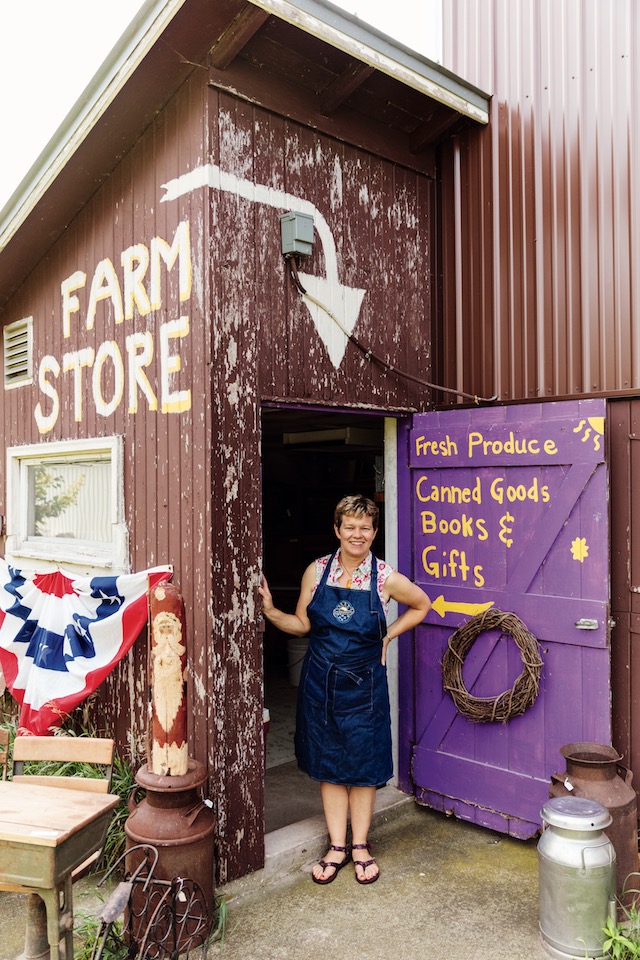
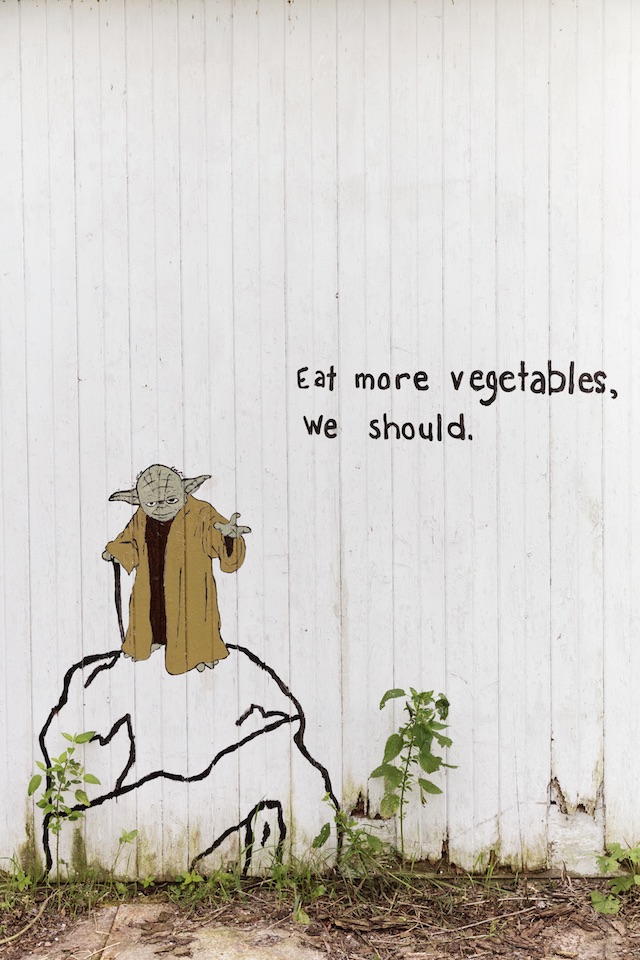
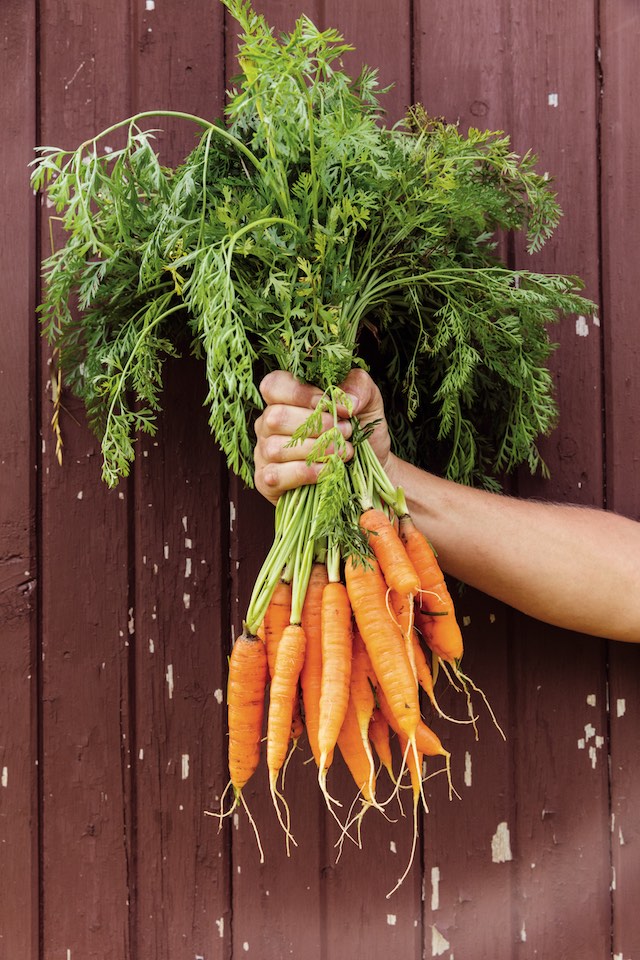
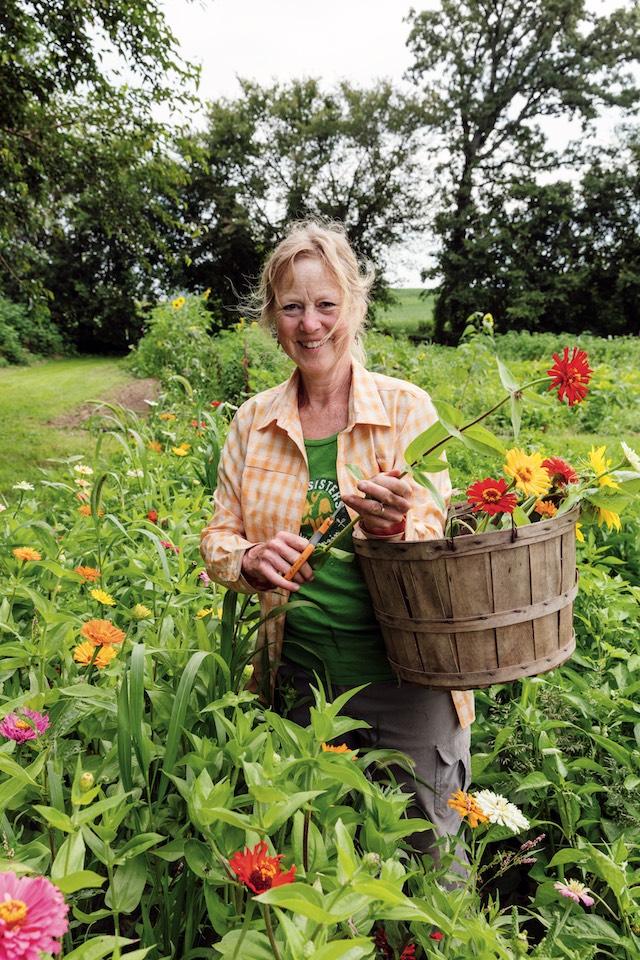
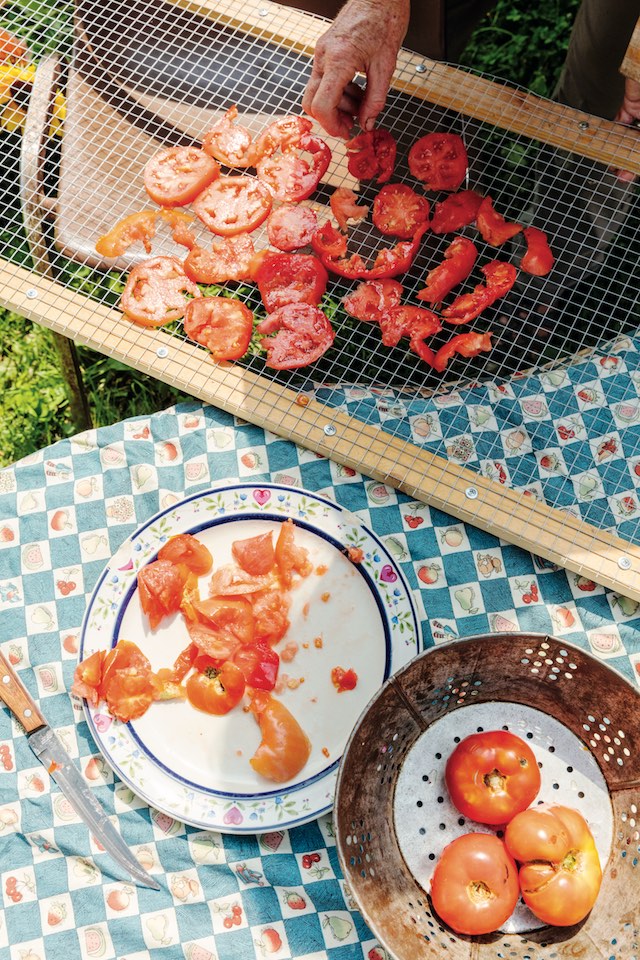
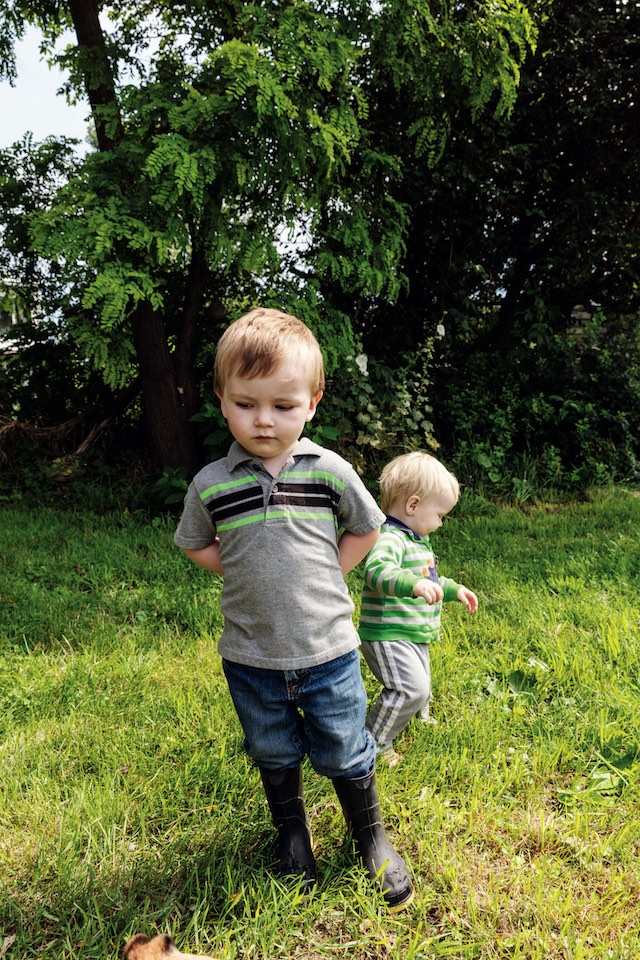
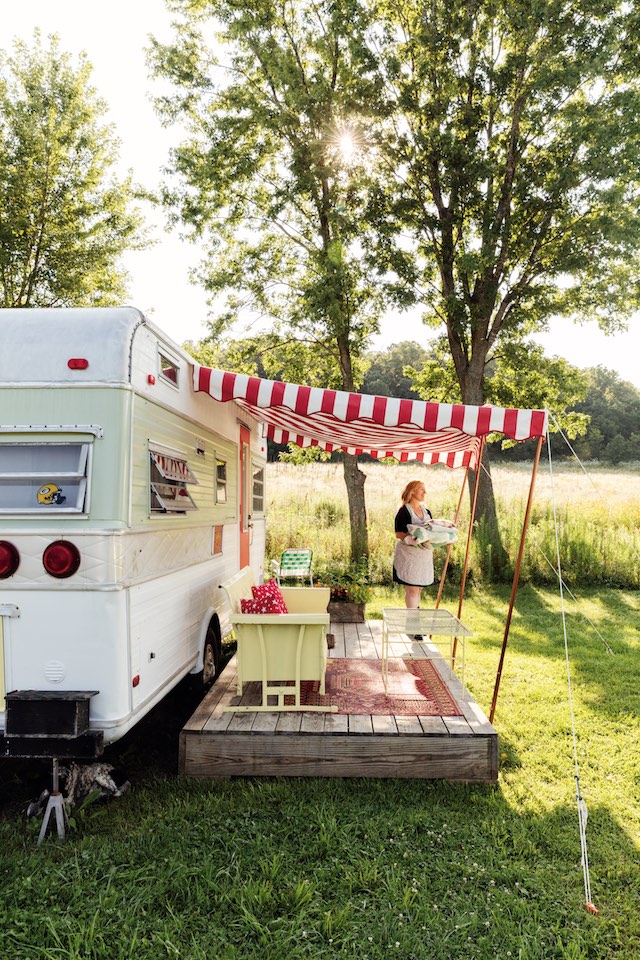
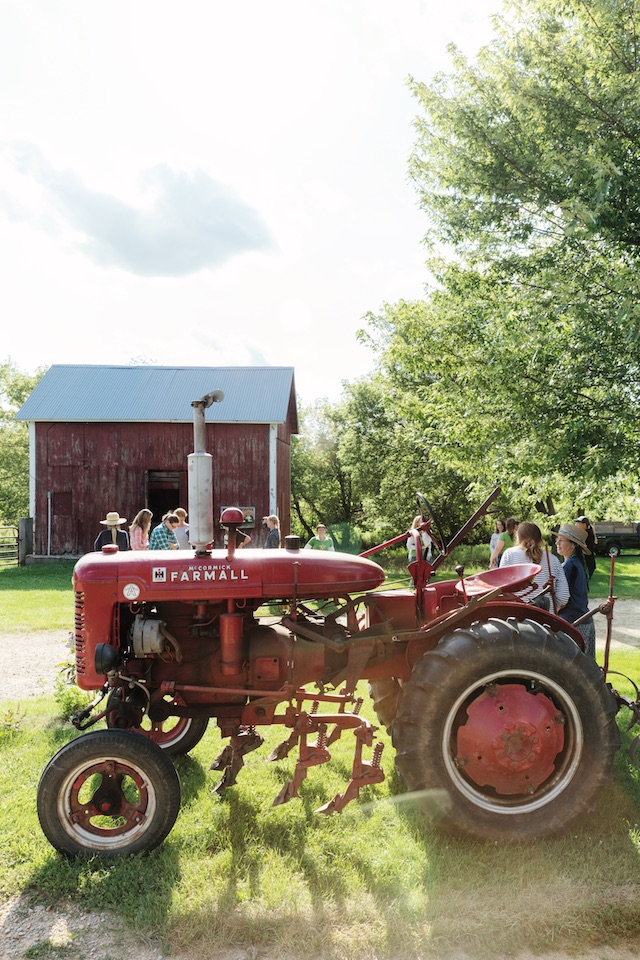
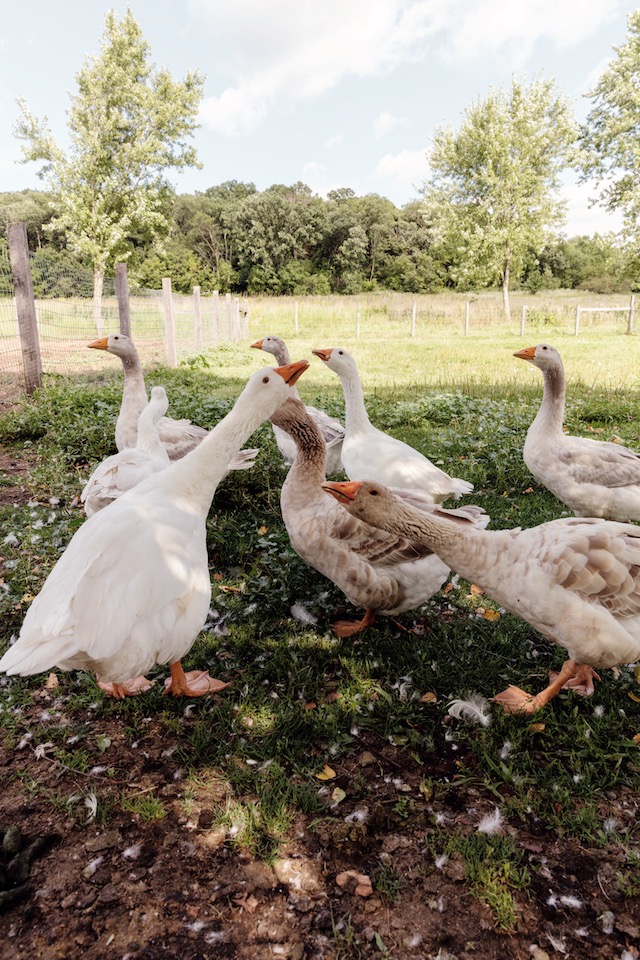
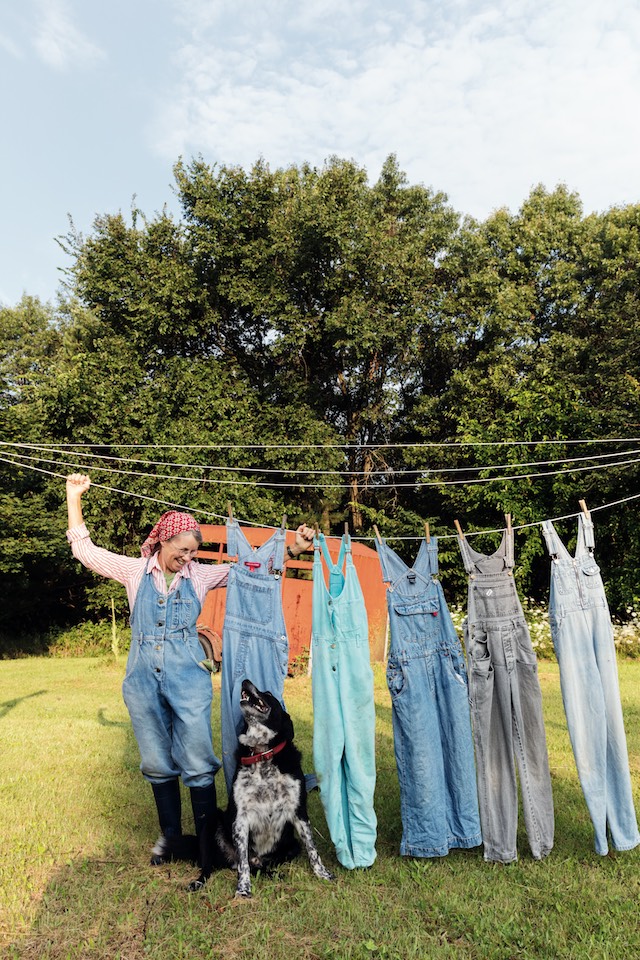

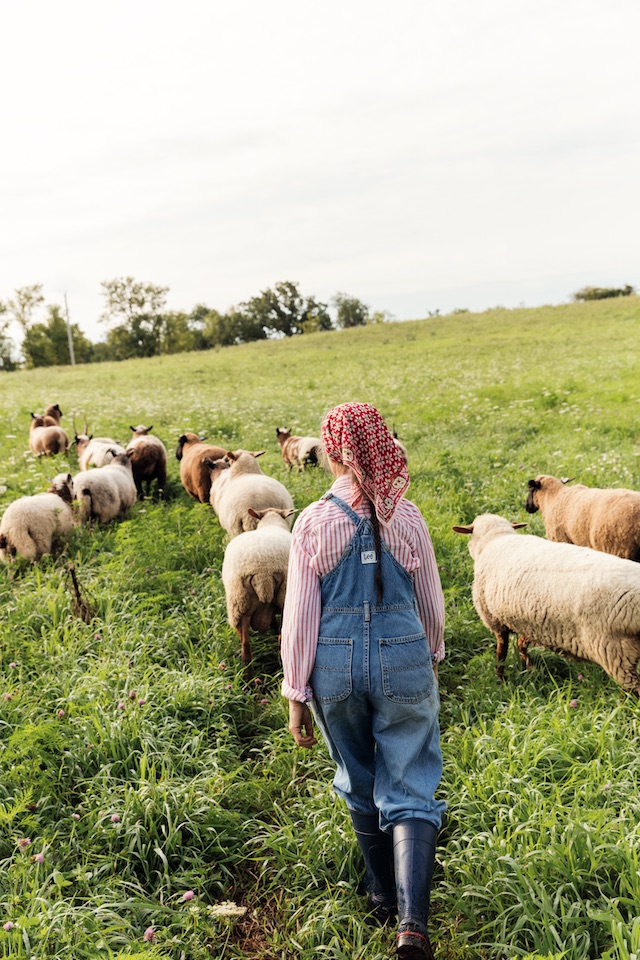
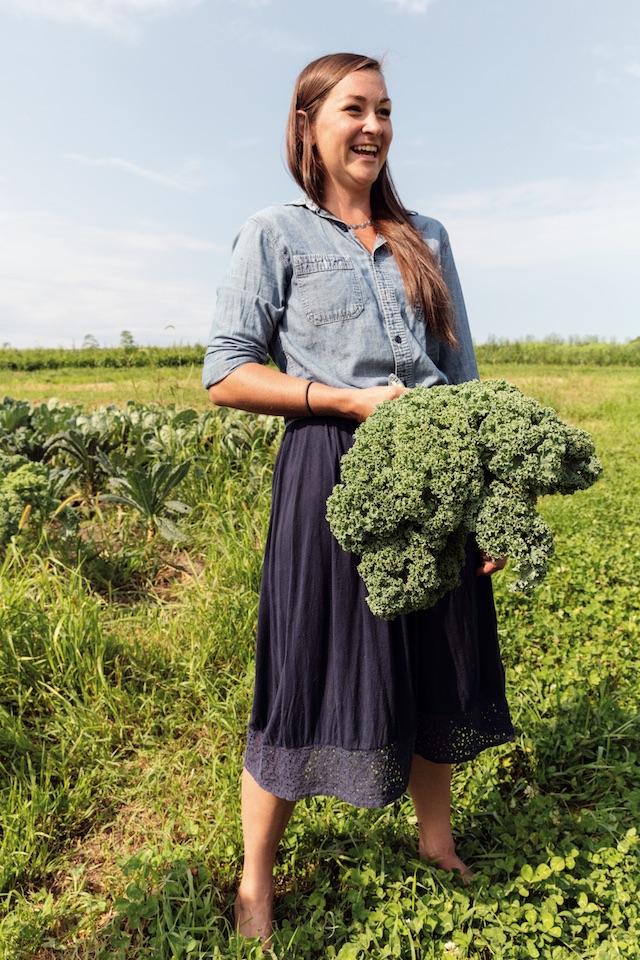
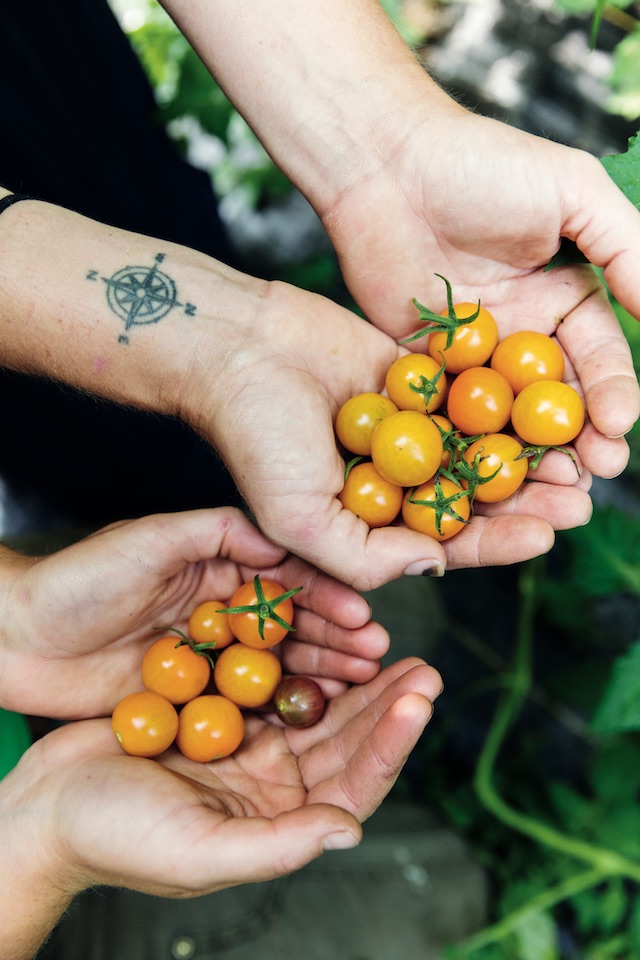
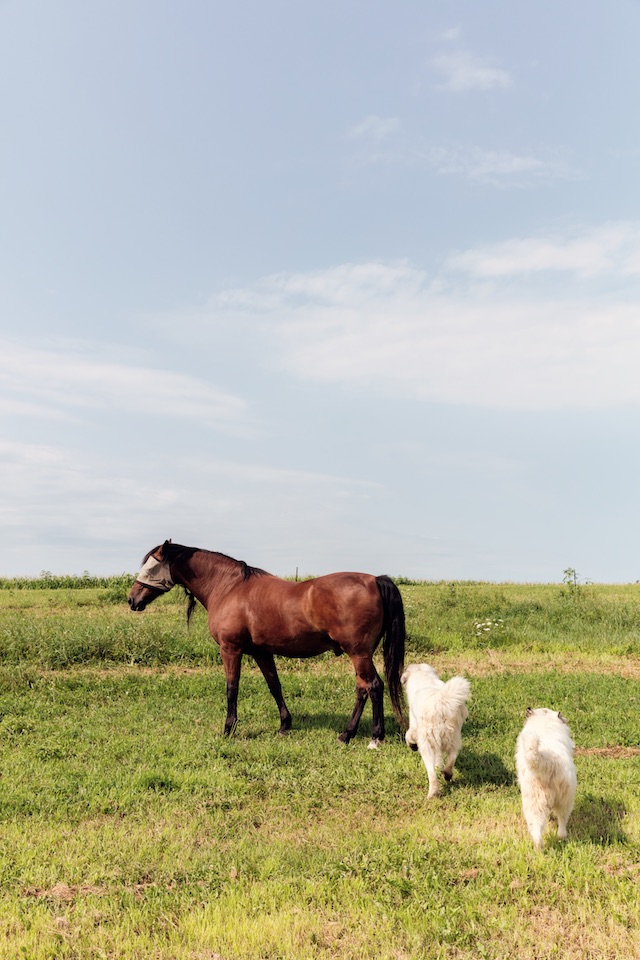
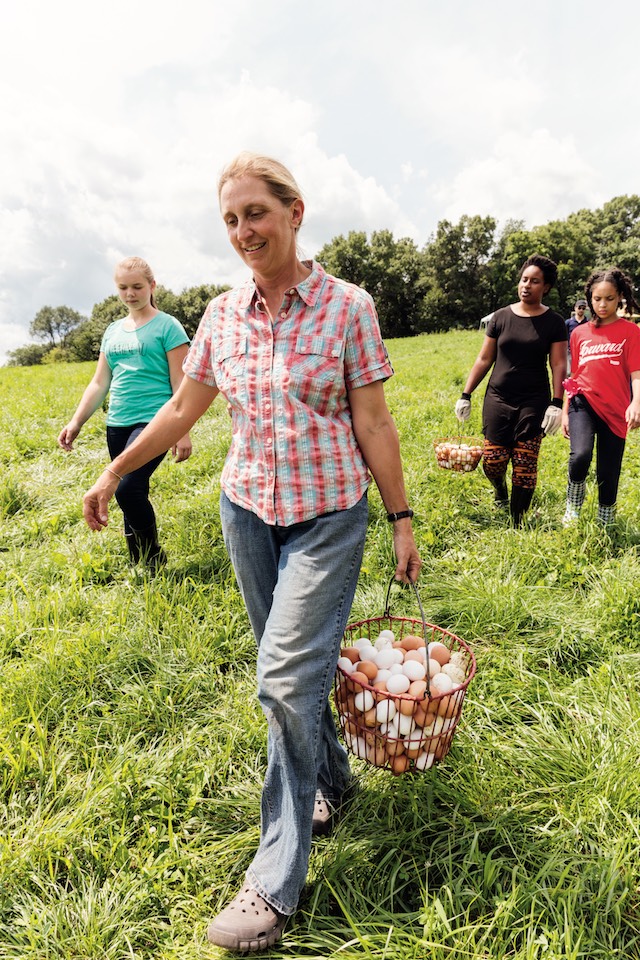
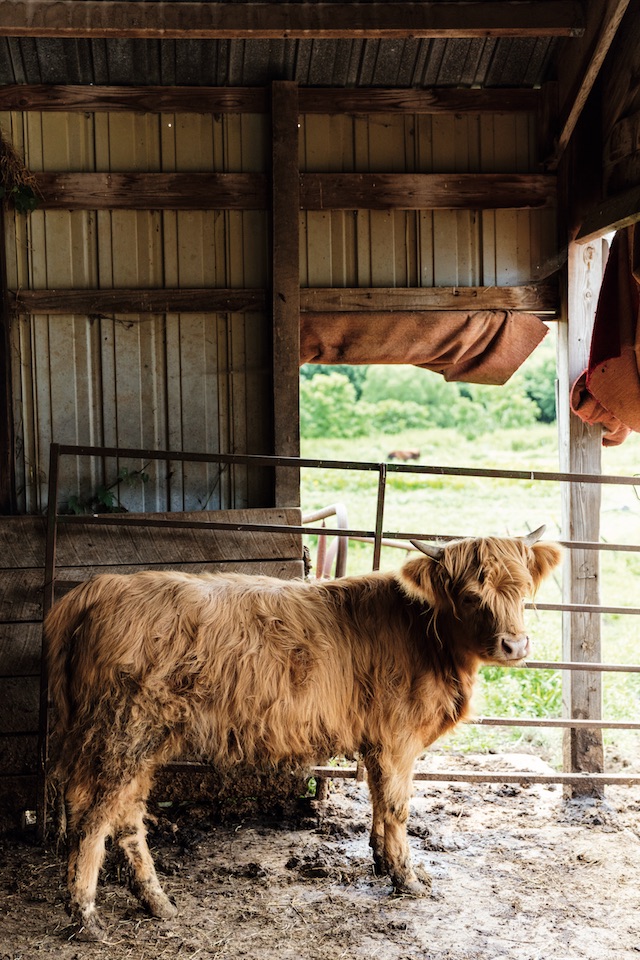
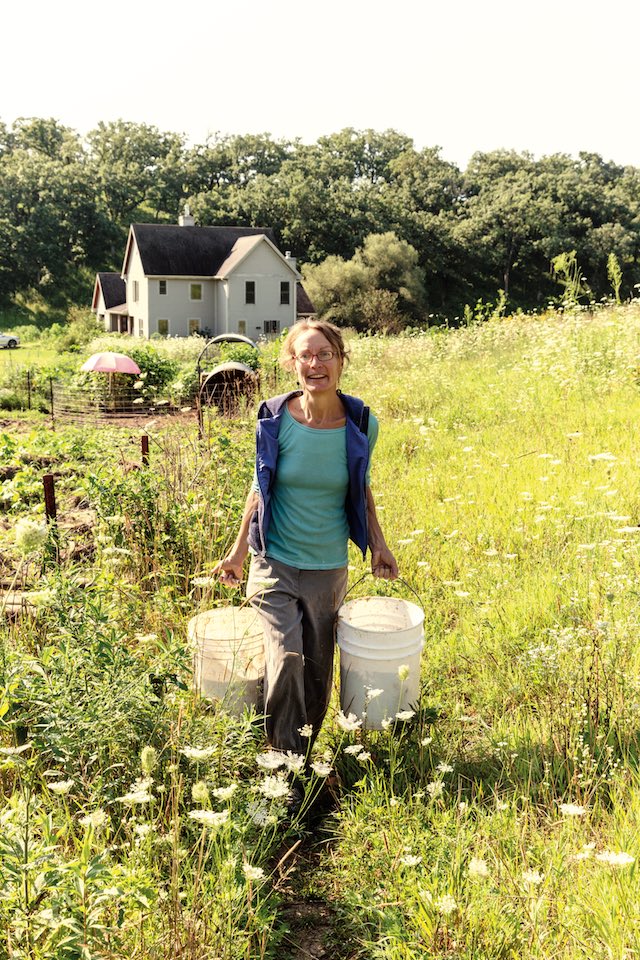
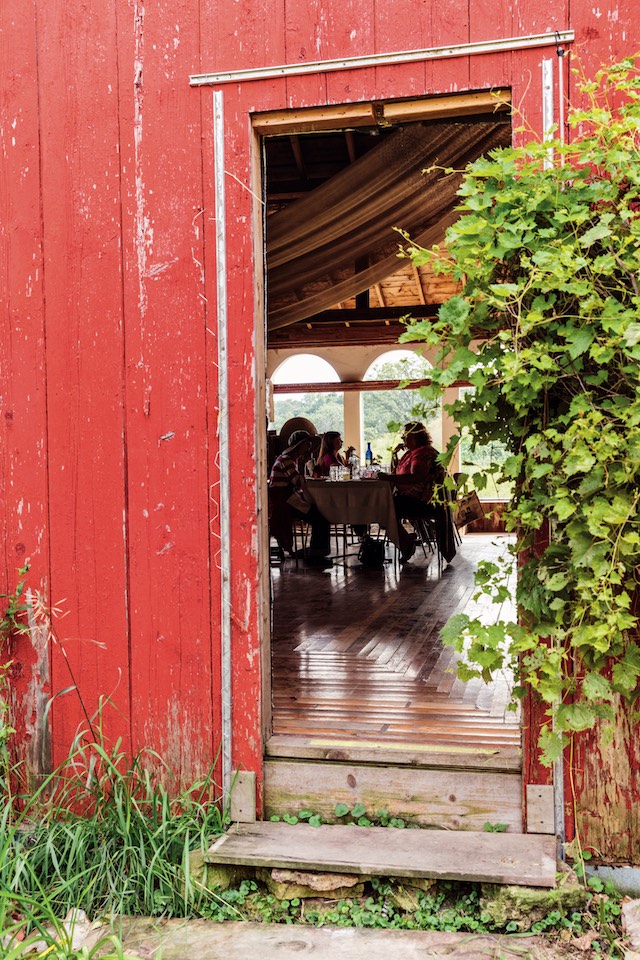
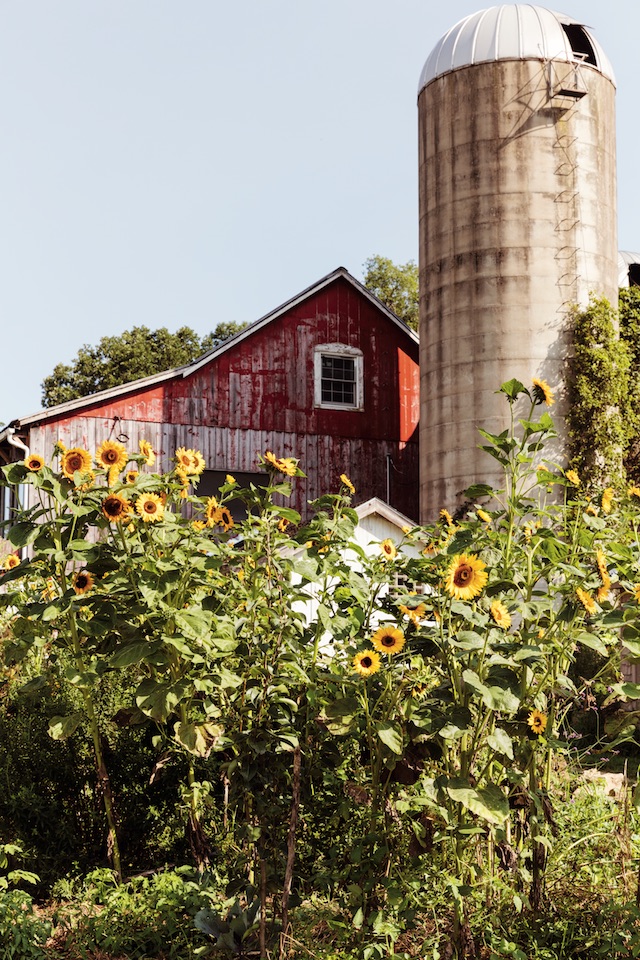
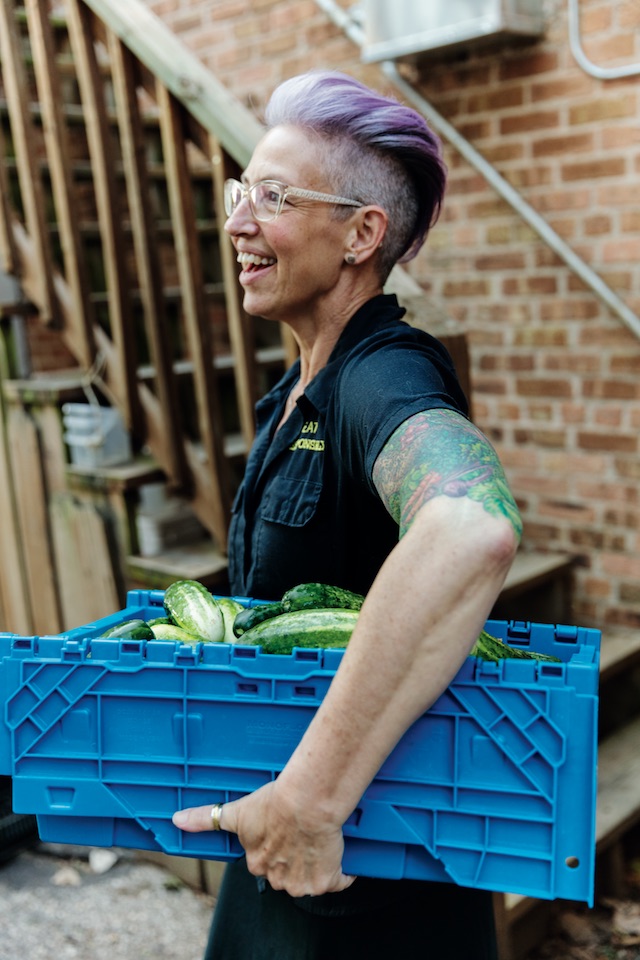
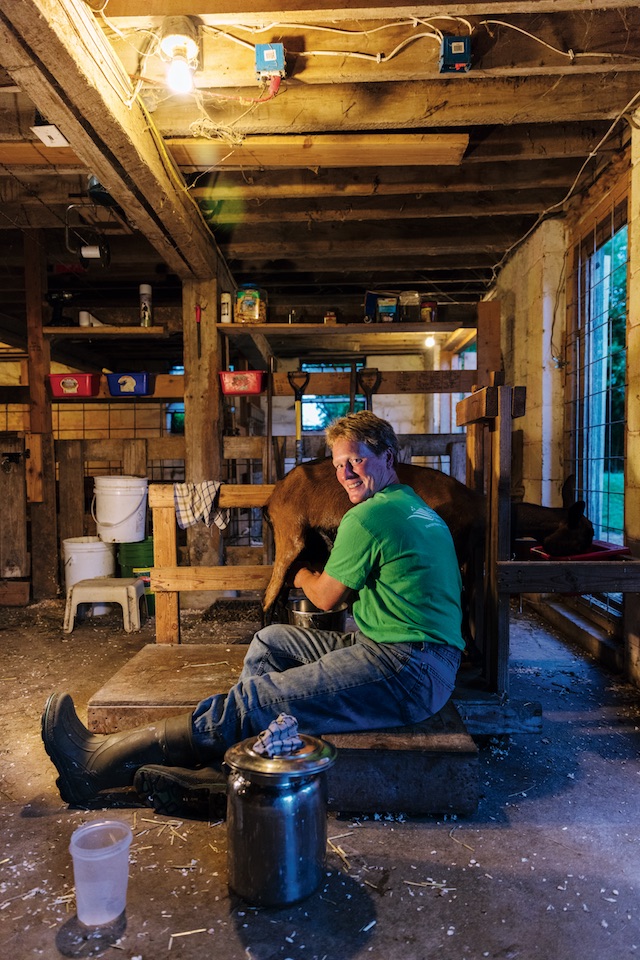
This is awesome!! Happy to see more women!
Made me laugh and cry..So proud to see women rocking the farmHer life!